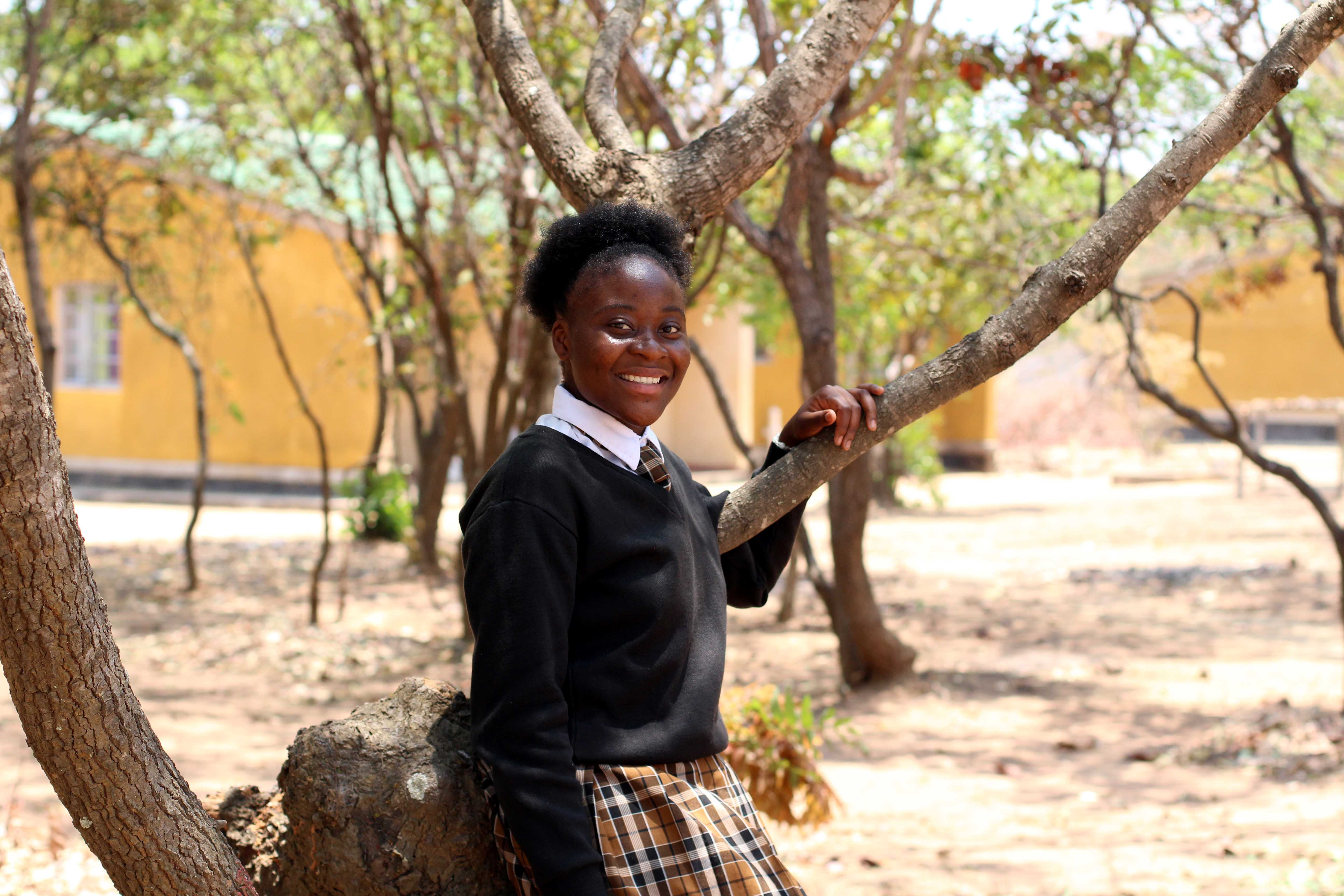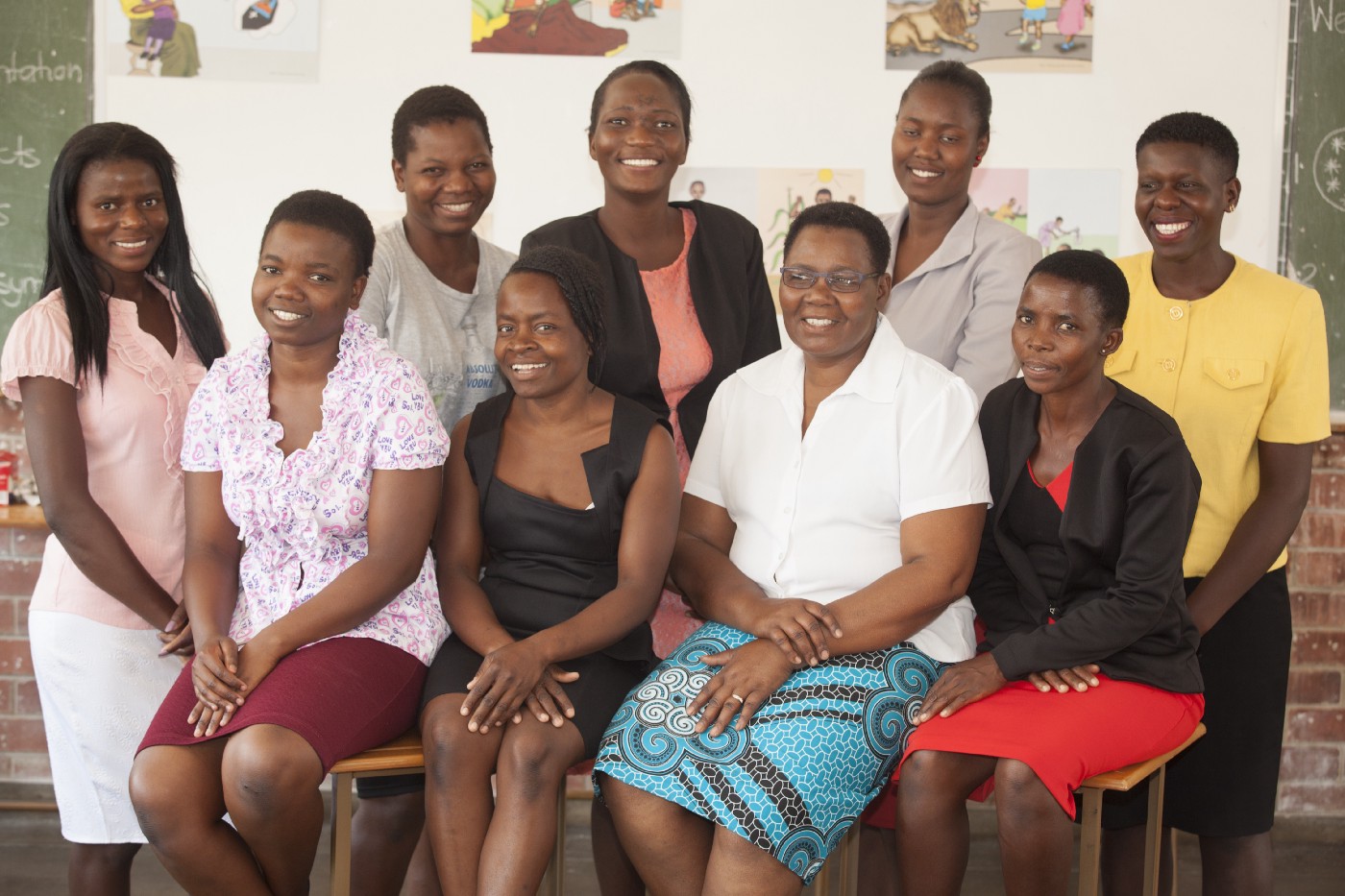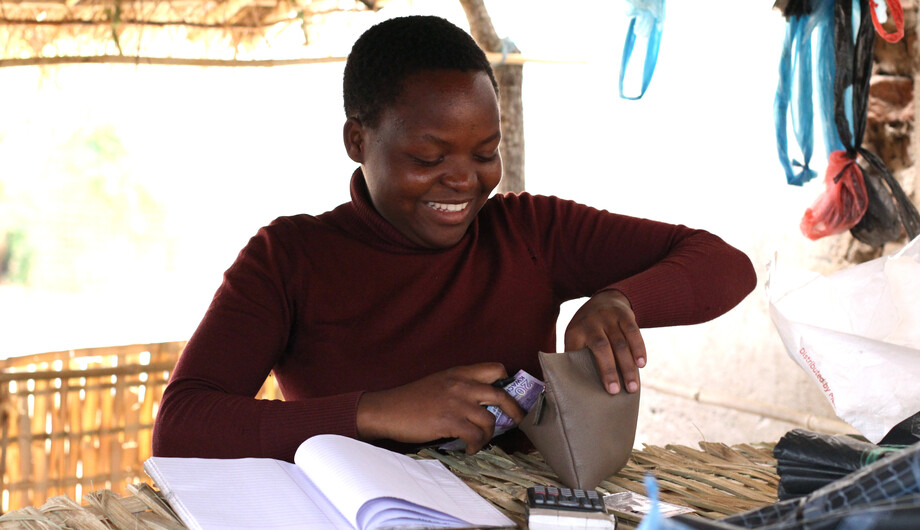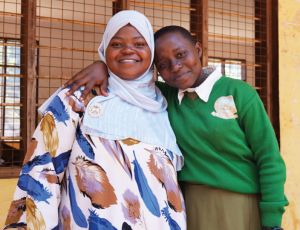One of the best things about my job is that every day I get to celebrate the achievements of other CAMFED (Campaign for Female Education) alumnae, my sisters in the CAMFED Association.
Growing up as girls in marginalized rural communities whose families struggled to send us to school, we could only dream that we’d become the teachers, doctors, lawyers and leaders of tomorrow. But we succeeded! And in the this year of the 25th anniversary of CAMFED, and the 20th anniversary of the CAMFED Association, we are truly coming of age. Numbering at more than 120,000 members across sub-Saharan Africa, we’re making a tangible impact on the next generation.
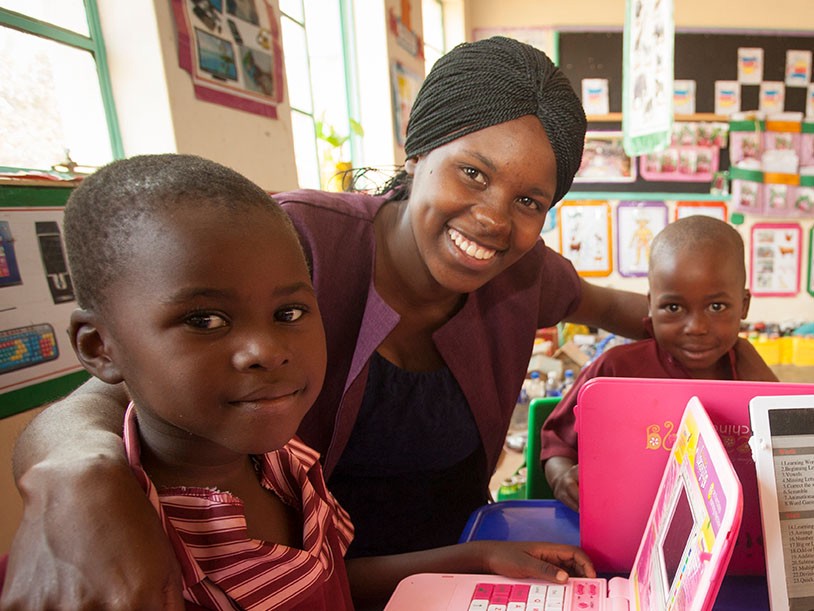
The teachers, like Sazini, have gained plenty of practical experience during training. (Photo: CAMFED/Jon Pilch)
A recent triumph for us was seeing the first of three new cohorts of CAMFED Association (CAMA) members from Zimbabwe achieving teaching qualifications. Many more, from Zambia, will graduate early next year. These women, whose own right to education was nearly denied, are now able to offer quality, inclusive education in their communities. It’s thanks to our dedicated donors and partners (in this case the ELMA Foundation) that we were able to support them through a three year training program in Early Childhood Development (ECD).
Ahead of World Teachers’ Day (5th October) I spoke to three of the newly qualified ECD teachers, who told me what education and the opportunity to teach means to them.
Amina: It’s never too early to start to educate a child
“Back in secondary school, my parents struggled a lot to pay my fees, but when I came here to college and CAMFED offered to assist with my tuition, everything was just so easy. I didn’t have to struggle anymore. Back then I used to work in the fields to raise the funds for my tuition and my books.
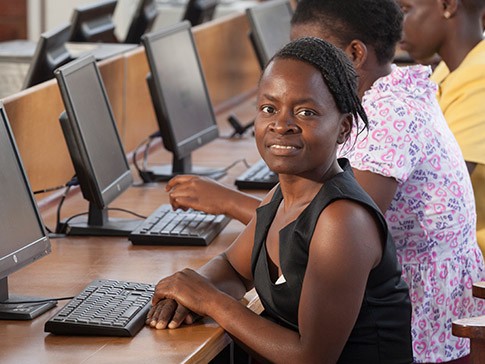
Amina advises strong time management to other CAMA members wishing to train as ECD teachers. (Photo: CAMFED/Jon Pilch)
I would like to make my community aware of the importance of education, especially for young learners. Maybe talk to young mothers and fathers so that they can involve their children as early as they can, to lay the foundation of education.
It’s never too early to start to educate a child, even if the child is two months, even if the child is two years, you can teach the child what you can teach a 20 year old, you just have to scale the content. That is the most important thing I’ve learned.
In future, I think the world will be CAMA. In 10 years, that is my wish. By then I’ll be teaching, giving back to my community and paying school fees for other disadvantaged children.”
Yolanda: I would like to educate my community, especially in how they care for their little ones
“Before I was introduced to CAMFED my life was something else. When I was still in secondary school, I used to go to school with a torn uniform and barefooted — even my siblings were like that, barefooted, torn uniform. Our school fees were not paid up… life was not good at all…
I joined CAMA in 2013 and I worked as a Learner Guide (life skills mentor). Being a Learner Guide taught me a lot; I am now able to share my problems with others. I am also now approachable because the learners were to come to me to share their problems with me. So that taught me to be the person I am today, being friendly, being approachable and so on.
CAMA means everything to me, because financially I am being supported by my colleagues and socially I am able to communicate with them freely. Because of CAMA I am what I am today, I am now a teacher. It all started because of CAMA.
I would like to educate my community, especially in how they care for their little ones, to be responsible for their young children. If I succeed in educating them they will have children who are happy and responsible.”
Sekai: I want to help young children in my community by being a role model to them
“I grew up in a family of six and I am third born. I grew up in the village with my mother since my dad had passed away. My mother struggled a lot to pay mine and my siblings’ school fees and stationery.
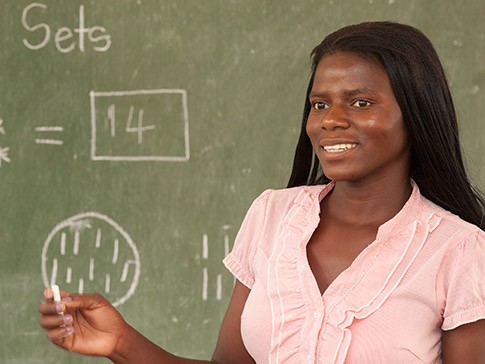
Sekai is eager to put her skills to use in the classroom. (Photo: CAMFED/Jon Pilch)
Then CAMFED chose to support me and I was given sanitary wear, stationery and my school fees were also paid. Life changed from there. As soon as I completed my final exams, I applied for teacher training and I got a place.
The completion of the ECD teacher training course has changed my prospects and aspirations. I have a passion for teaching and wanted to help young children in my community by being a role model to them. During my training I observed that young learners need maximum care and love. So in my future class I wish to carefully nurture my learners.”
I hope you join me in celebrating this new generation of teachers, who are bringing their own life story, empathy, and a deep commitment to their community into the all-important early learning environment.
Faith Nkala was one of the first girls supported at school by CAMFED and a founding member of the CAMFED Association of women leaders. Faith helped to develop CAMFED’s Learner Guide Program, through which CAMFED Association members return to schools as peer educators to deliver a bespoke life skills and wellbeing curriculum. She is CAMFED’s National Director in Zimbabwe. If you are inspired by these young teachers, why not get involved to help them transform more lives.
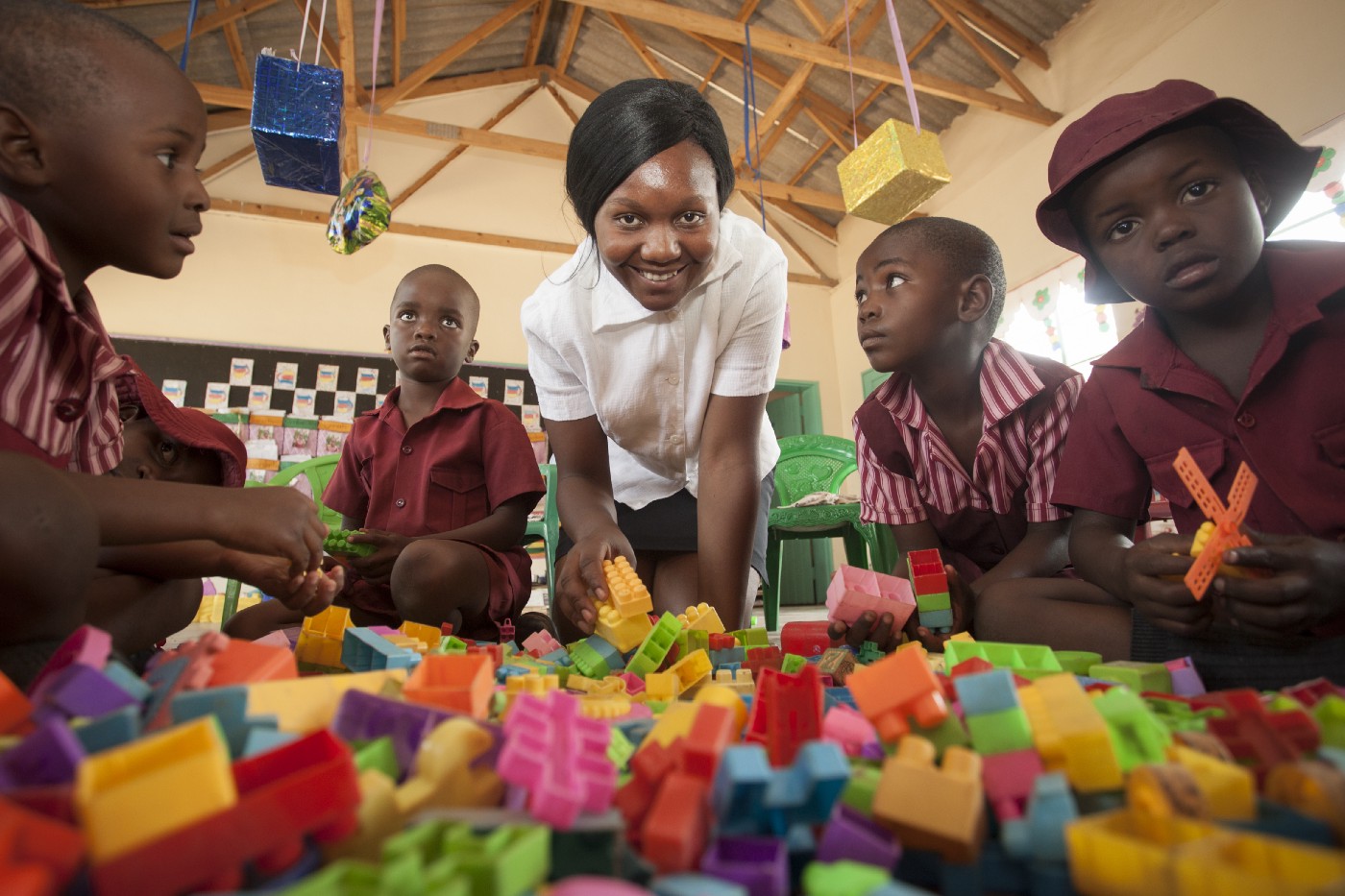
Teacher Sikhanyisiwe encourages a rich teaching environment to help young learners develop. (Photo: CAMFED/Jon Pilch)
